Chinese Language Courses in Jingmai Tea Mountain
Intensive One-on-One Chinese Classes
Intensive One-on-One Chinese Classes
- Personal study plans
- Best teachers and private lessons
- Start anytime
- Full immersion experience
- Full services (study + single room accommodation)
HSK Test Preparation Course
HSK Test Preparation Course
- Start anytime
- HSK experts with years of experience
- Get test scores improved significantly
- Intensive one-on-one Chinese class
- Full services (study + single room accommodation)
Chinese Language Course + Tour in China
Chinese Language Course + Tour in China
- Private one-on-one Chinese lessons
- Full services (study + accommodation)
- Excursions and tours with your teacher
- Travel to Dali, Lijiang, Shangri-la, Jianshui, Yuanyang
Learn Chinese Online
Learn Chinese Online
- Live 1-on-1 online Chinese lessons
- Learn Chinese online anytime
- Study Mandarin anywhere
- Professional Chinese teachers
- Personal study plans
Intensive One-on-one Chinese Course
You can choose to study Chinese in Jingmai Tea Mountain for 4 hours per day (20 hours/week) or 6 hours per day (30 hours/week). If you want to learn Chinese in China, the intensive one-on-one course is the fastest way to improve your Chinese.
We use unique teaching methods developed by Keats. Your Chinese teacher(s) will prepare your lessons according to your level of Chinese and your learning goals to make sure that you learn the most Chinese in the shortest possible time.
Accommodation is included.
Accommodation in Jingmai Tea Mountain
- Single/Double room accommodation with private bathroom
- The Keats campus is located in the minority Bulang village with special Bulang architecture. Their architecture is characterized by the use of wood as the primary material and often includes elevated houses and water-based structures. The elevated houses, known as “high-legged houses,” are the most representative form of Bulang architecture.
- Clean, safe and comfortable
- Life in Jingmai Tea Mountain is a serene blend of age-old tea traditions, tranquil landscapes, and harmonious living with nature
Accommodation in Jingmai Tea Mountain
Life in Jingmai Tea Mountain is tranquil and immersed in nature.









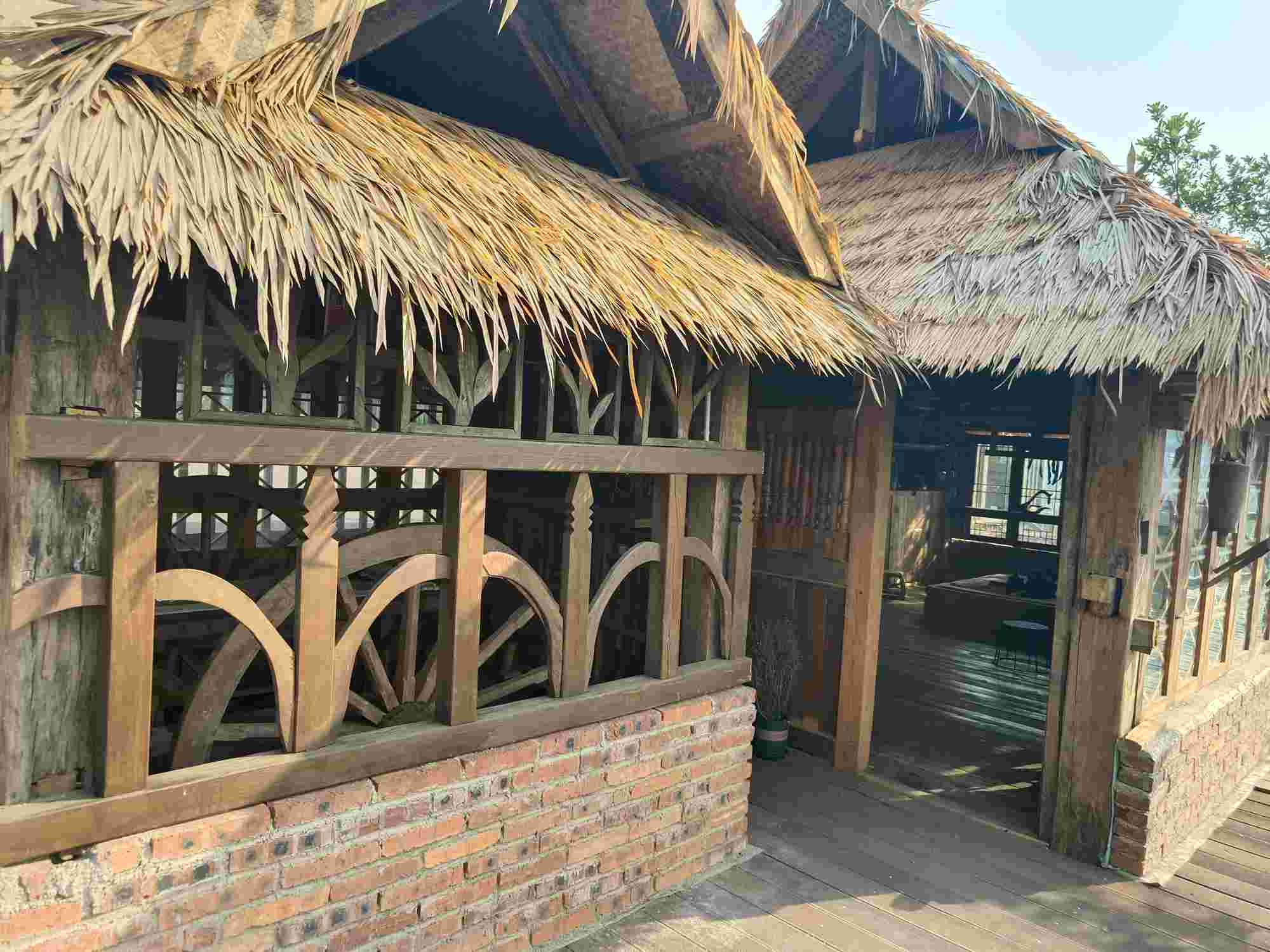

















Why learn Chinese in Jingmai Mountain?
Jingmai Mountain is located in Pu’er City, in China’s Yunnan province. If you are a fan of Chinese tea, you will experience the breathtaking ancient tea terraces, lush tropical forests, fascinating heritage, and exquisite Pu’er tea of Jingmai Mountain, China’s premier tea cultivation origin.
In 2023, UNESCO announced that Jingmai Tea Mountain is to be a world heritage, which is a significant event for China and for the world of tea. Jingmai Mountain has the world’s best-preserved, oldest, and largest artificially cultivated ancient tea garden, which has witnessed the development of Chinese tea culture.
You can experience the minority culture of the Bulang group and the Dai group.
Full Immersion in Chinese
- If you prefer to have an all-Chinese learning environment and not speak any English, Jingmai Tea Mountain is for you. Please don’t be surprised if you are the only student in Jingmai Tea Mountain or if you barely see any international visitors.
- The best thing about studying in Jingmai Tea Mountain is that your teacher will accompany you to do sightseeing every day after class, to create a pure Chinese language environment for you. Studying Chinese in Jingmai Tea Mountain not only focuses on the Chinese language but also offers a chance to explore the local culture with your teacher.
- If you prefer a big and vivid international student community or expect a school community experience, please choose to learn Chinese in Kunming at the Kunming campus.
Beautiful Jingmai Tea Mountain
Experience Jingmai Tea Mountain, a timeless journey through China's ancient tea culture amidst breathtaking natural beauty.


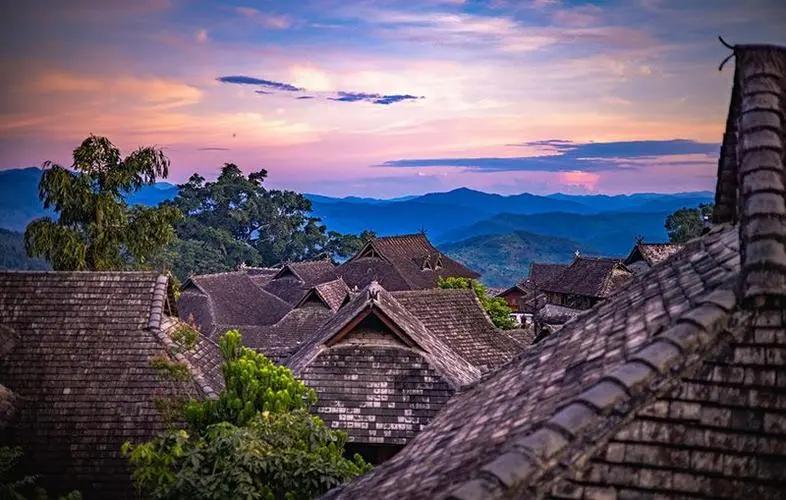

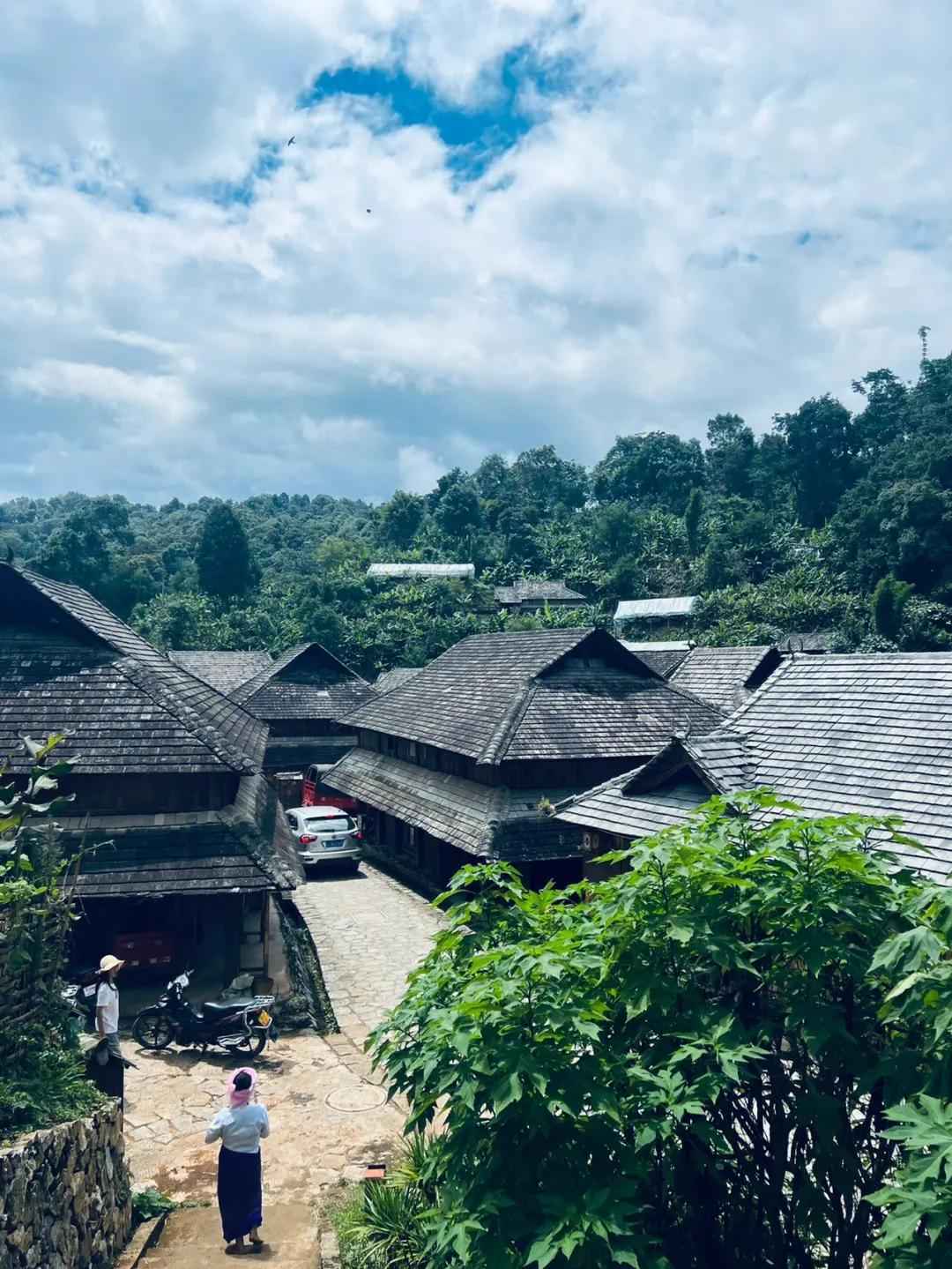

































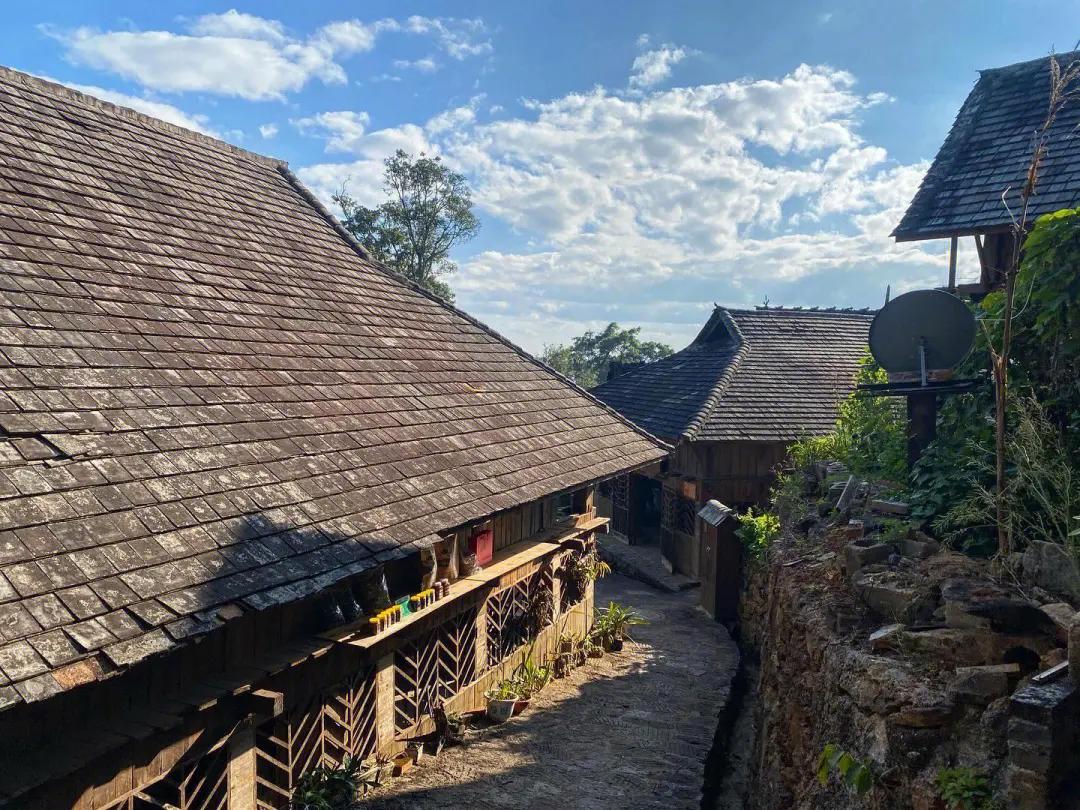


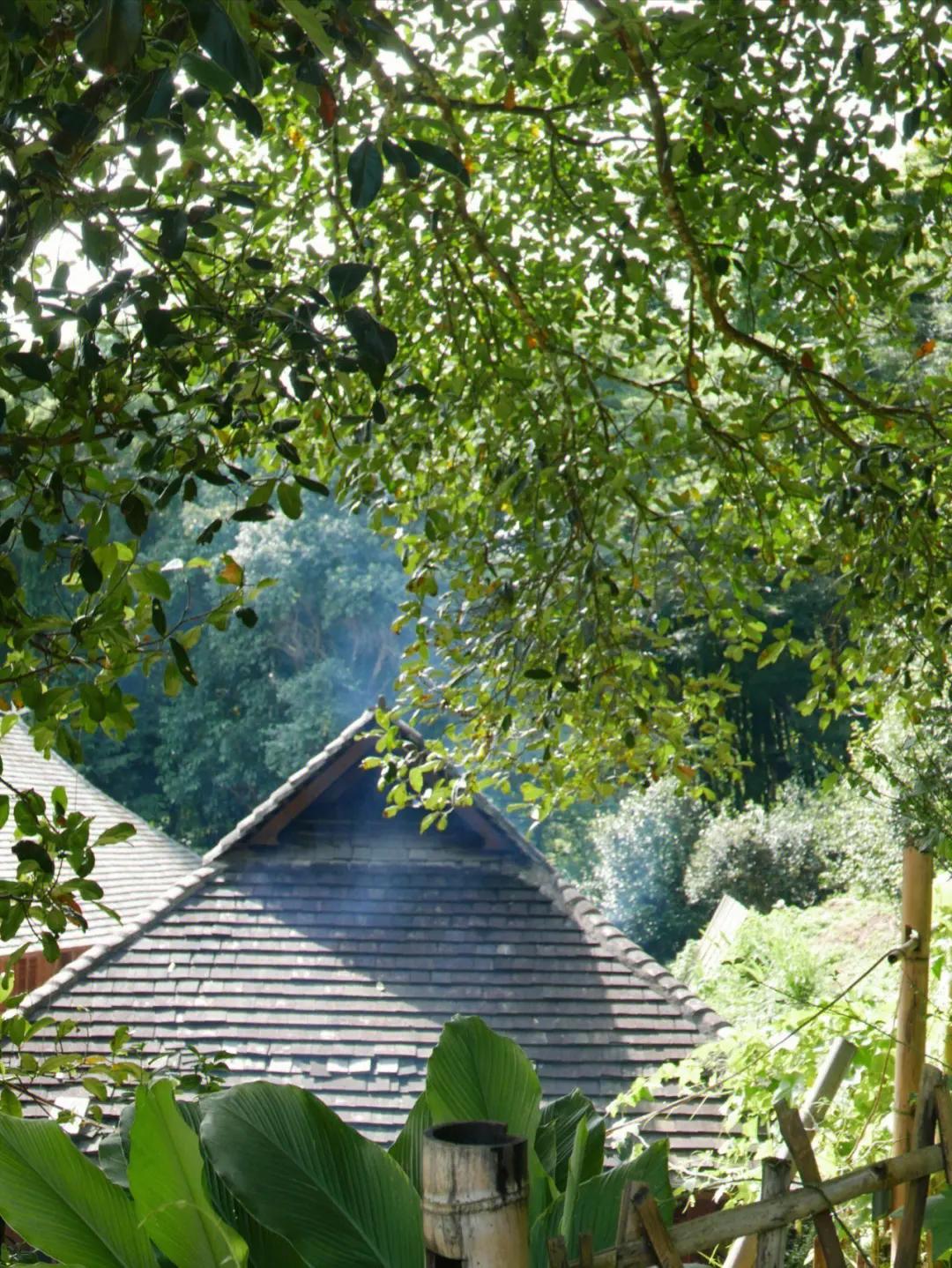
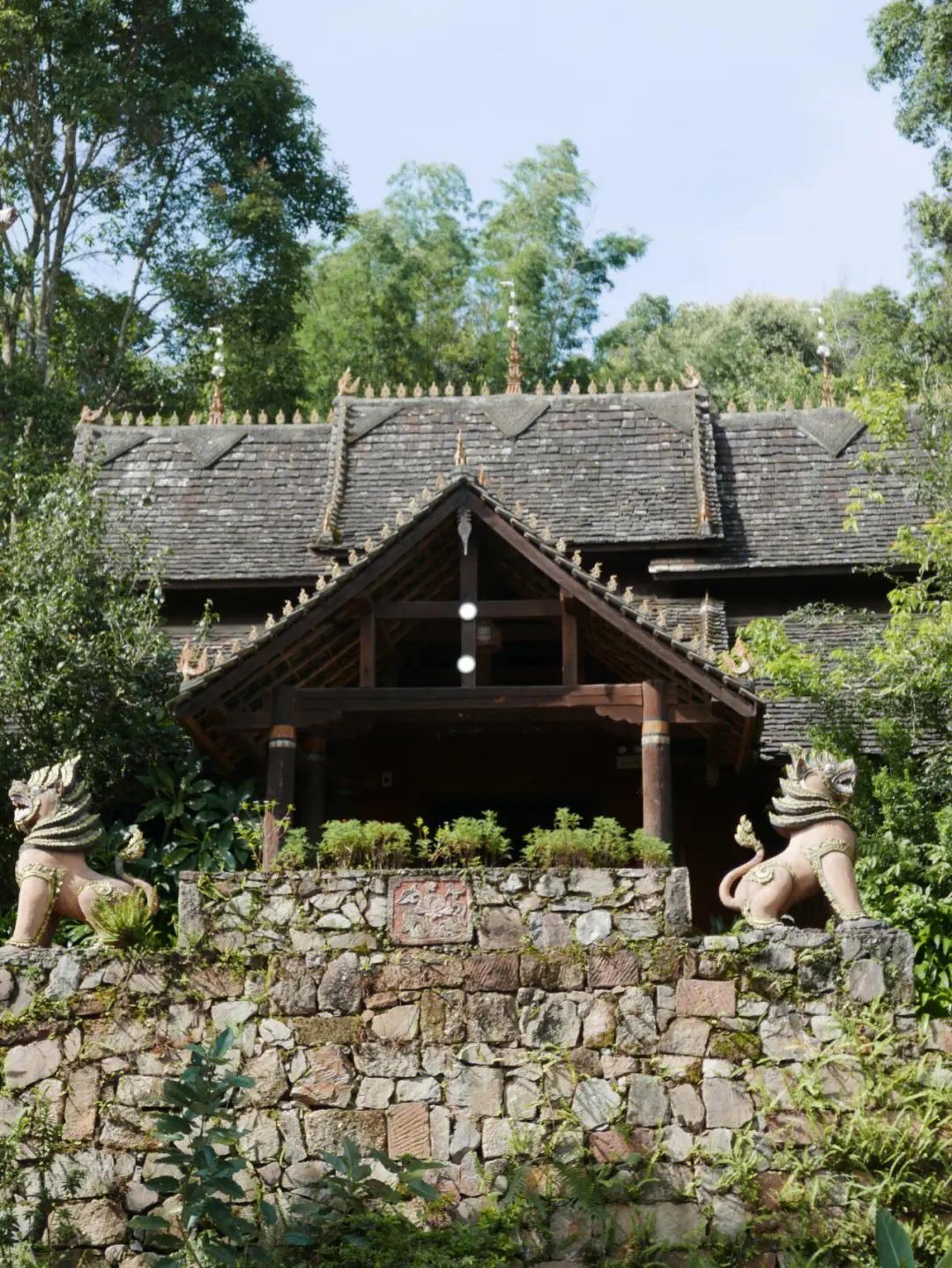
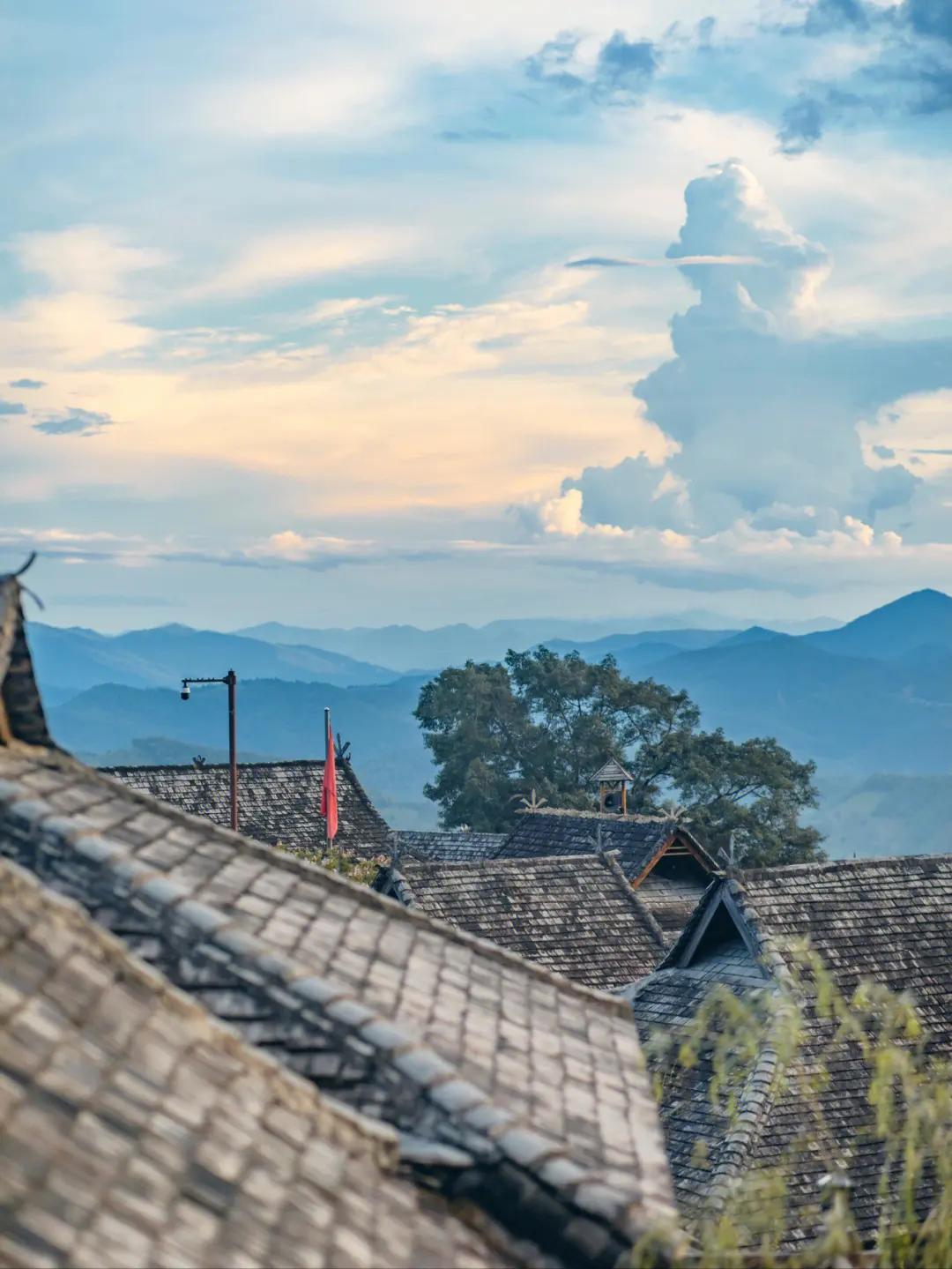

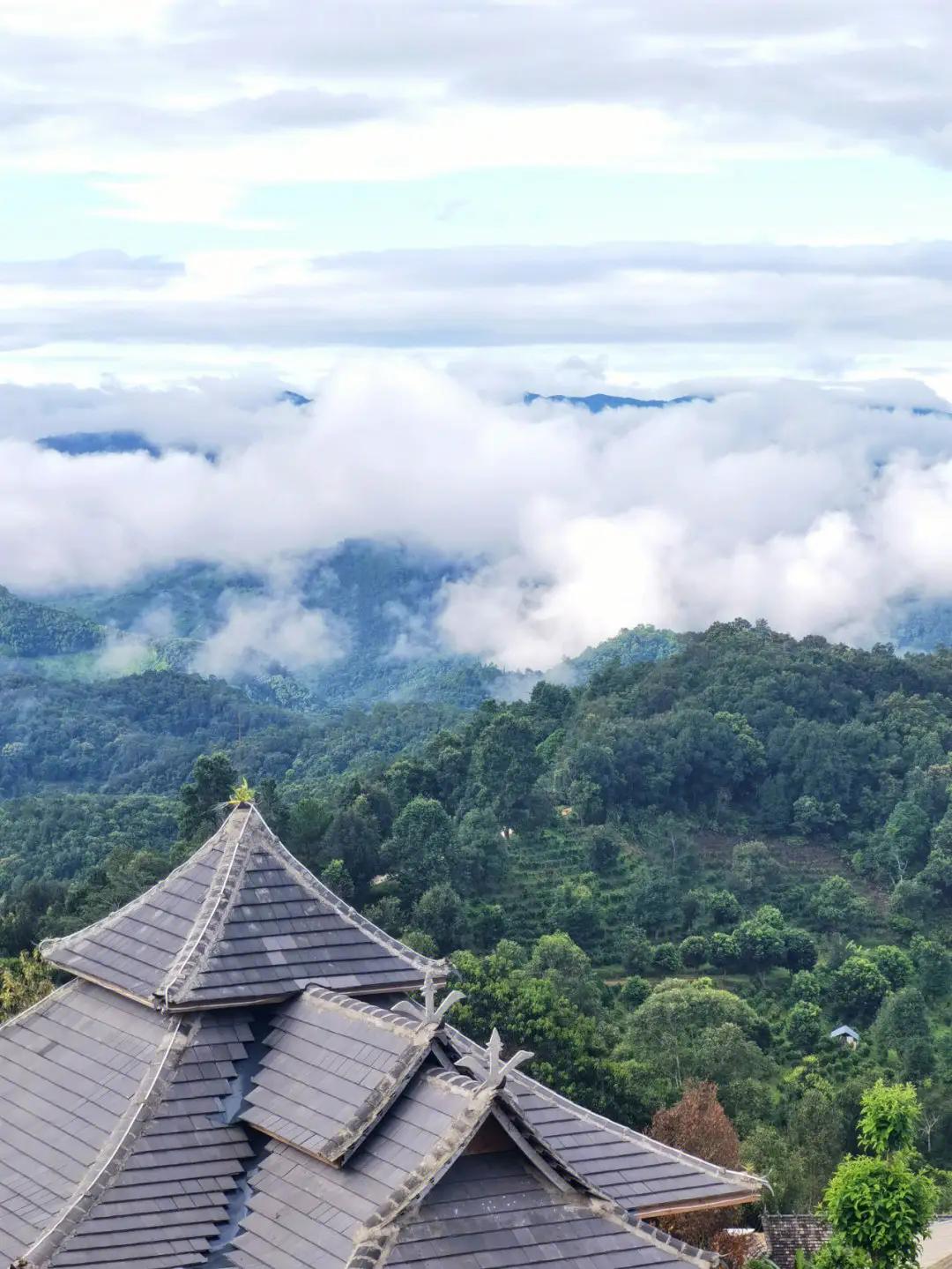
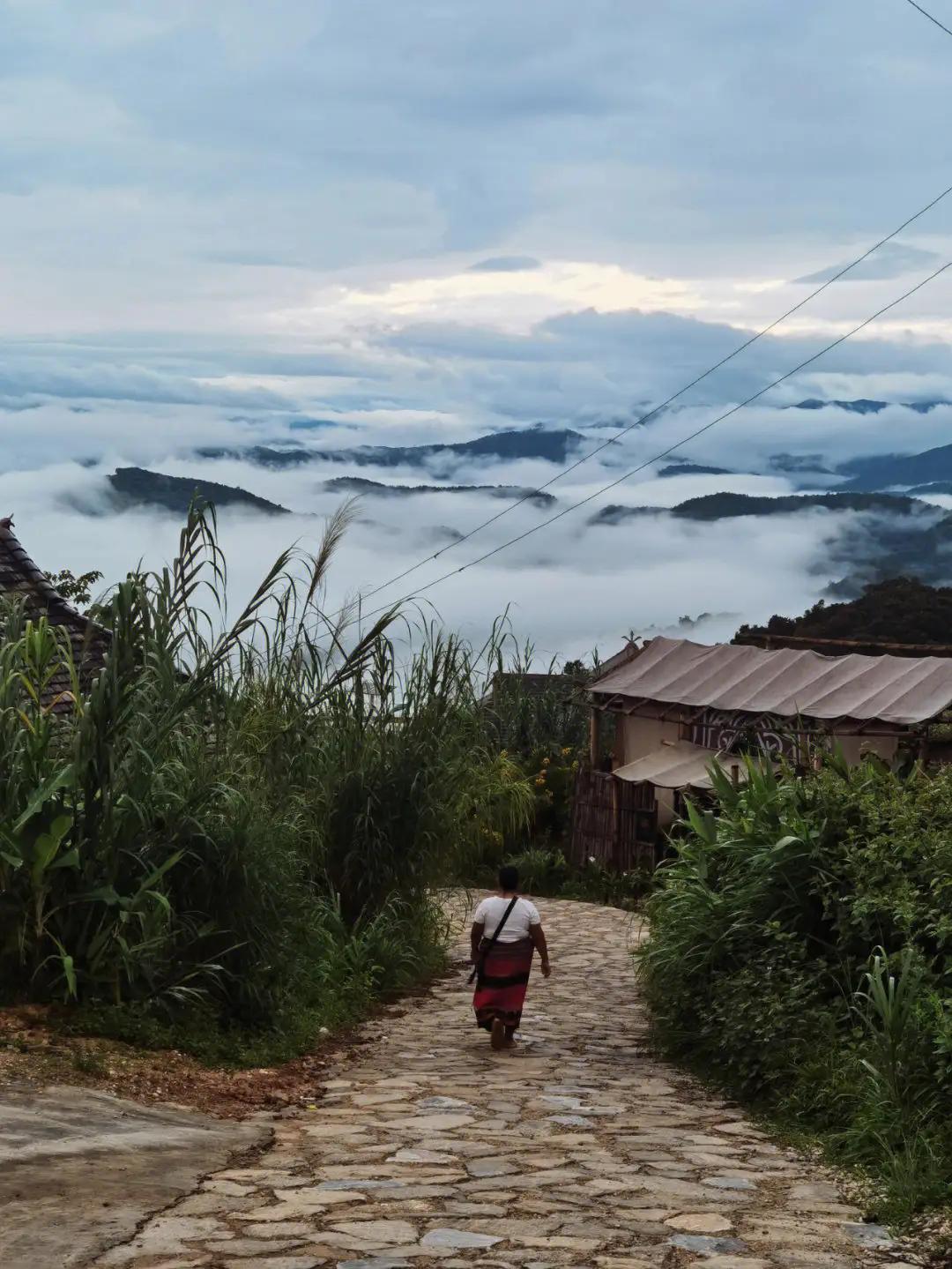
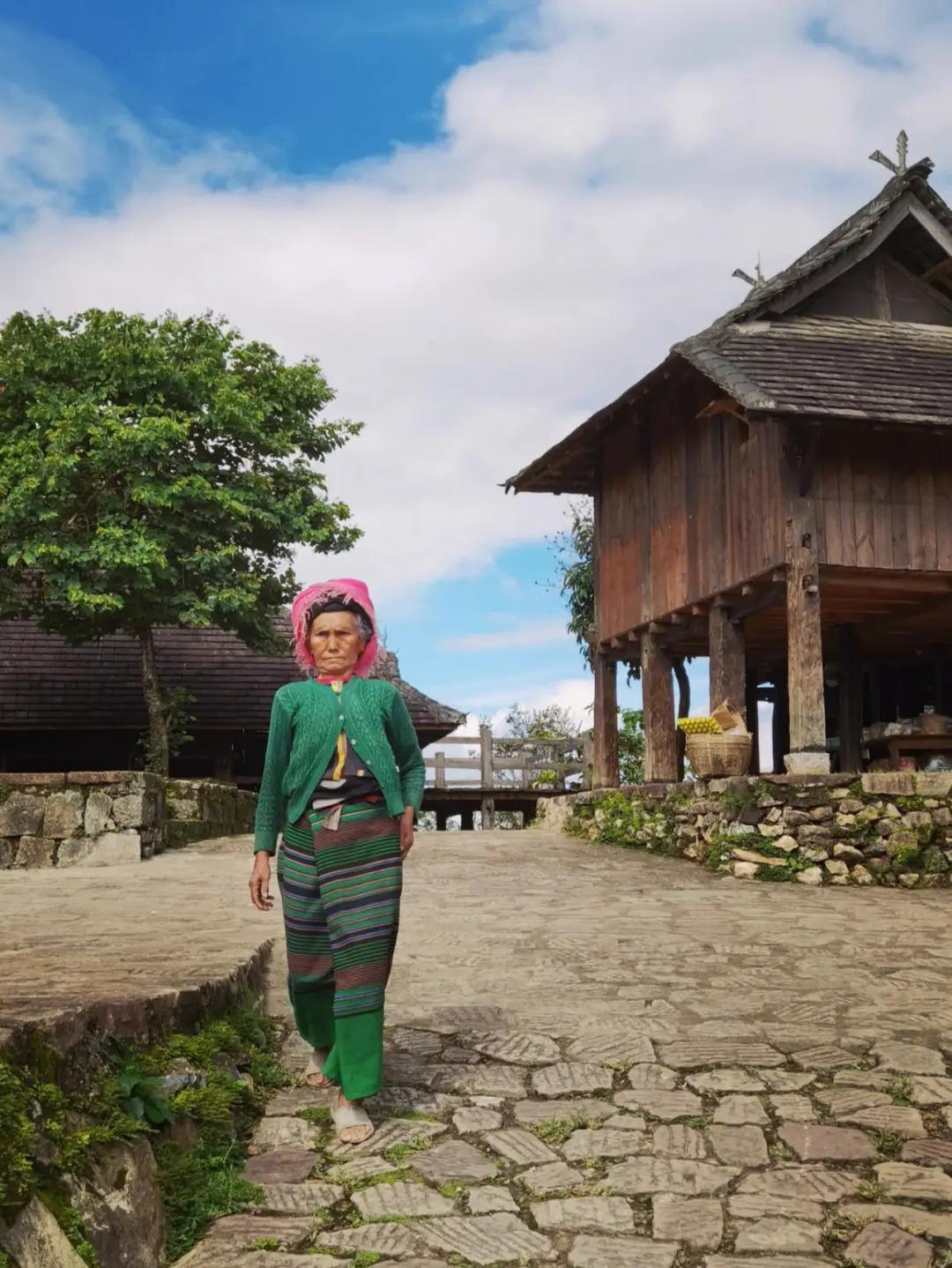
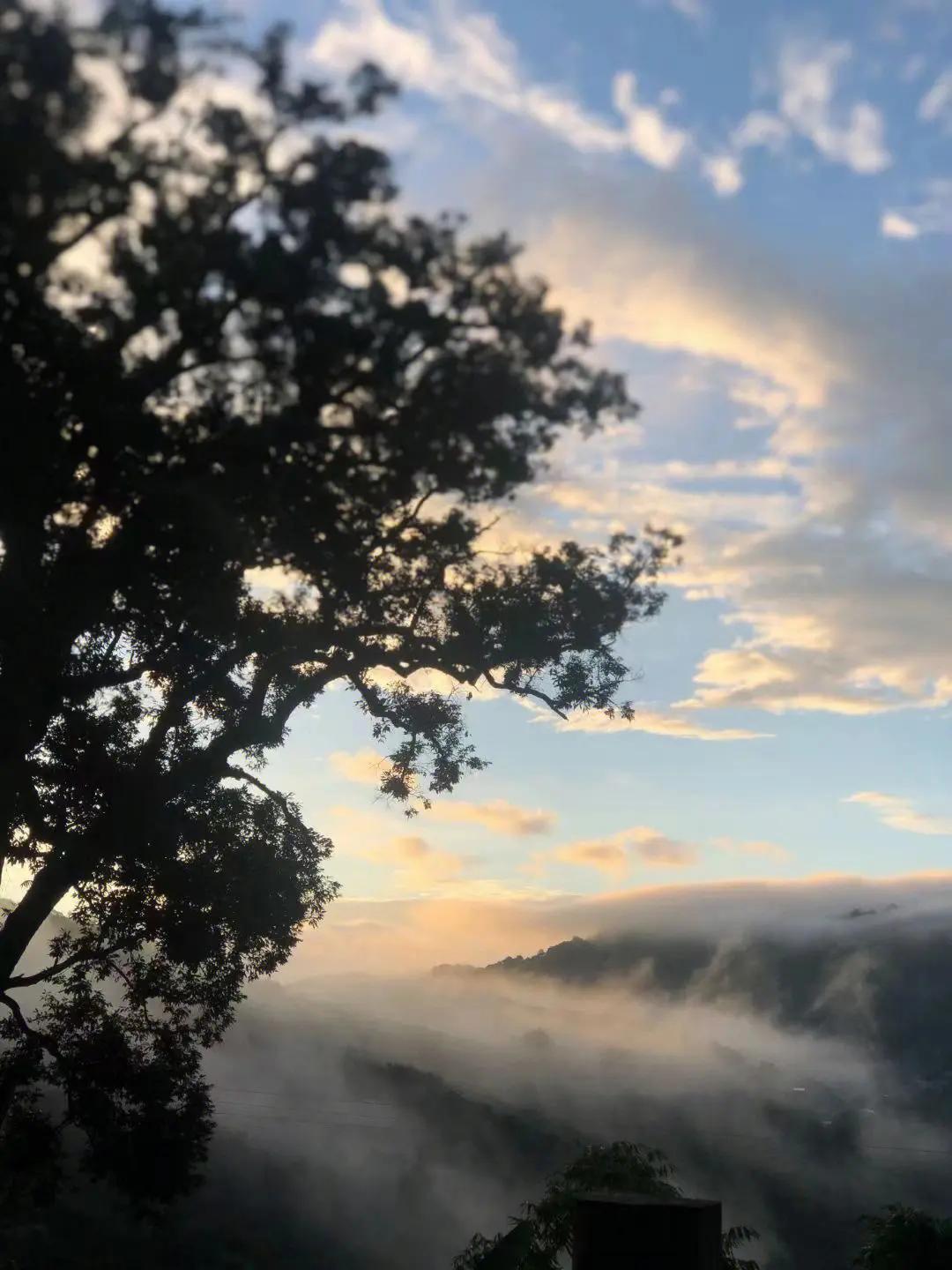
How to Get to Jingmai Mountain?
Jingmai Mountain is located in the southwestern of Kunming. There are two airports located nearby Jingmai Mountain, which are Lancang River Airport and Xishuangbanna Airport. The fastest way to get to Jingmaishan Mountain is to take a flight from Kunming to Lancang River Airport. We will pick you up at the airport for free and the ride is about 2 hours to get to the Bulang village.
Do you know what kind of transportation you can take in China?
Places to Visit in Jingmai Mountain – Ancient Villages
There are two famous ancient villages on Jingmai Tea Mountain. One is the Wengji Village, which the Bulang minority group inhabits. The other one is Nuogan Village, where the Dai minority group lives. These two ancient villages are the most well-preserved two of many ancient villages here in Jingmai Tea Mountain.
These featured minority group wooden-fenced buildings are scattered along the hill, breathing together with the old tea trees and forests.
Places to Visit in Jingmai Mountain – Chahuntai
When learning Chinese in Jingmai Mountain, China, you must visit the Chahuntai.
Chahuntai is where Bulang people worship their ancestors, Pa’aileng, and his wife, the Dai Princess Qigongzhu. Pa’aileng was the leader of the ancient Bulang group who taught Bulang people how to grow tea leaves.
Every year in the middle of April, the Bulang group holds a ground ceremony to memorize and worship their ancestors, so it is also called Tea Ancestor Festival.
Places to Visit in Jingmai Mountain – Bee God Tree
Among many places for you to visit in Jingmai Mountain, the Bee God Tree must be an interesting one.
There is a tall ancient Banyan tree near the Mangjing area. More than 60 honeycombs are always gathered on the tree, so the local Bulang group calls it Bee God Tree. The Bulang people believe that bees are the angels of happiness and the incarnation of their ancestors Pa’aileng. A ritual event called “attracting bees” will be held at significant festivals under the Bee God Tree.
Places to Visit in Jingmai Mountain – Tea Gardens
One of the many places for you to visit after the Chinese classes is the local tea gardens.
Jingmai Mountain is famous for its long history of producing top-quality Pu’er tea. Many ancient tea gardens still work well nowadays. Among them, the Dapingzhang tea garden is the most famous one. It is located in a land that flats like a palm.
In the Dapingzhang tea garden, there is an ancient tea tree that has lived for over 1,000 years. This ancient tea tree breathes with the dense forests around it and radiates a unique fragrance. It would be even stronger in fall when the tea blossoms are everywhere on the hill.
Places to Visit in Jingmai Mountain – Manghong Octagonal Pagoda
This pagoda is a Theravada Buddhist Pagoda built in the Qing Dynasty by the Bulang people. This pagoda is in an octagonal pattern with a height of 2.1 meters. There are seven stone carving patterns on the top and bottom of the tower body and a tower gate in the west. There are ancient weapons painted under the eaves of the pagoda, and the interior of the tower is hollow, which is the place where the Buddhist scriptures of the Bulang people are collected.
Things To Do in Jingmai Mountain – Photographing the sea of clouds
The autumn and winter seasons are the best time to appreciate the pretty natural view of the sea of clouds here in Jingmai Mountain. You can slow down your footsteps here in Jingmai Mountain to enjoy a peaceful daily life by basking in the warm sunshine, drinking the best Pu’er tea, and taking amazing pictures of the sea of clouds flowing among the hills.
Things To Do in Jingmai Mountain – Experiencing ethnic minority’s culture
Many ethnic minorities have lived on Jingmai Mountain for generations, such as Bulang, Dai, Hani, and Wa. Each minority group has its characteristics, and only when you study Chinese in Jingmai can you truly experience the folk customs and folklore of these minority groups.
April is the most concentrated time for celebrating minority festivals in Jingmai Mountain. The Songkran Festival, the Shankang Festival, and the grand tea ancestor ceremony were held by the Bulang people. Each village will have a banquet; people will also set off fireworks. April is also the time for spring tea to go on the market, and there will be many tea merchants, which is very lively.
Over 7300 Students Have Studied at Keats
Cuisine in Jingmai Mountain – Chopped raw meats 剁生
Raw meats are minced raw meat repeatedly chopped with lean meat from various animals and pure natural wild seasonings. In the chopping process, people will also chop an appropriate amount of animal blood together. The dish of chopped raw meats has many ingredients. When served with a variety of fresh wild vegetables and fruits, the taste is even more remarkable, making people unforgettable for a lifetime. This dish is an exceptional minority cuisine popular among the Bulang and Dai people in Jingmai Mountain.
If you are a food lover, you cannot miss the 10 dishes you must try when learning Chinese in Yunnan.
Cuisine in Jingmai Mountain – Wrapped and steamed rice noodle 包蒸
The dish of wrapped and steamed rice noodles is also the specialty flavor ethnic cuisine of Jingmai Mountain. Rice noodles, fresh pork meats, plantain leaves, small bitter fruits, and mushrooms are the main ingredients. Chopping the ingredients separately, mixing them with rice noodles evenly, adding various seasonings, and wrapping them up with banana leaves. Steaming the wrapped dish for a while, you can enjoy this delicacy.
Cuisine in Jingmai Mountain – Bulang group’s grinded Chilli 布朗舂辣子
Bulang people prefer the spicy flavor. The Bulang group’s ground chili is with distinctive minority characteristics. Bulang people use self-grown chili, mixing with at least 12 spices to pestle together. When all of these ingredients are evenly ground, this dish is completed. This dish of Bulang group’s ground Chilli can be served as an appetizer or added directly to the main course or other dishes to enrich the taste.
FAQ
How to Get to Jingmai Tea Mountain?
Jingmai Tea Mountain is located in the southwestern of Kunming. There are two airports located nearby Jingmai Mountain, which are Lancang River Airport and Xishuangbanna Airport. The fastest way to get to Jingmaishan Mountain is to take a flight from Kunming to Lancang River Airport. We will pick you up at the airport and the ride is about 2 hours to get to the Bulang village.
What's the year around temperature in Jingmai Tea Mountain?
Jingmai Tea Mountain is located in the Lancang County of Yunnan Province, China, which has a subtropical climate. Here’s a general idea of the temperatures:
- Winter (December – February): The temperature usually hovers between 8-17 degrees Celsius (46-63 degrees Fahrenheit).
- Spring (March – May): The temperature typically ranges from 15-25 degrees Celsius (59-77 degrees Fahrenheit).
- Summer (June – August): This is the warmest period with temperatures averaging around 20-30 degrees Celsius (68-86 degrees Fahrenheit).
- Autumn (September – November): The temperature typically ranges from 15-25 degrees Celsius (59-77 degrees Fahrenheit).
What does the tuition fee include?
The tuition fee includes:
- 4/6 hours of one-on-one Chinese lessons per day Monday to Friday
- Accommodation (A clean and safe single/double room with private bathroom)
- Program Certificate
We also offer a list of free services for studying in Jingmai Tea Mountain:
- Airport pick-up and drop-off
- Internet access use without limit
- Saturday excursions
- Laundry
- A tour of the surroundings (bank, supermarket, post office etc.)
- Medicine for minor illnesses
- Advisors available to offer help
- 24/7 support
- Access to The Chairman’s Bao online learning platform
- Visa application assistance
- Room cleaning every day
Where to eat in Jingmai Tea Mountain?
The Keats campus is conveniently located in the Bulang Village, so there are many street foods and local restaurants close by. If you come in April when the minorities celebrate many festivals, you will be invited to eat at local people’s houses. The minority people are so warm-hearted that you will see the most genuine faces with pure hearts. They would invite you to their houses, they would offer you the best Pu’er tea, they would take you to see the most beautiful scenery, and they would take you to take part in all available minority festivals. You will love your Chinese learning experience in Jingmai Tea Mountain.
LEARN CHINESE IN CHINA WITH KEATS
Jaq's Story at Keats
The Inspiration of Chinese Tea
OVER 7300+ STUDENTS
HAVE STUDIED AT KEATS
Kunming is a fantastic city. The weather here is great. The school is excellent. The instructors are very helpful, very friendly. I strongly recommend that anybody who is looking for a Chinese language school in China come here to study. Kunming and Keats school are much better than any other place.
I am a graduate student working on my doctorate degree at Columbia University. We were able to really focus on speaking especially interview-style speaking and we are able to really up my Chinese reading and writing skills, so when I go back to Columbia, I can take formal Chinese classes. It has been a really good experience and I really love my teacher.
I really enjoy coming here because it is like kind of a home for me. It is a great environment to learn Mandarin Chinese in China and meet great people from all over the world. Everyone here is extremely friendly. Kunming has a really nice climate. It is a very good mix of the modern city and also a lot of historic Chinese culture. Probably got the cleanest air in China and possibly the cleanest water too. I invite you to come to study Chinese in Kunming.
I think the Chinese learning environment here is great. The teaching methods are also very interactive and fun. What I particularly enjoy here is the fact that my teacher does not stick to the textbook. We spend a lot of time discussing general topics, such as Chinese culture, world news, typical expressions used by local people. We also discuss social and economic topics.
This is my second time coming. Last year, I also came for about 12 weeks. This time I came for 13 weeks of a summer program in China. The reason why I particularly want to come to this school was because of the one-on-one classes. I was able to increase my level and learn Chinese more quickly than in group classes. If I have a chance again to come next year, I certainly will.
One thing I really liked was that I was able to work with my teacher to make an individual plan of study. Another really nice thing is that you live at the school, you feel completely safe. You always have a group of people who are willing to do things with you on the weekends or in the evenings. They are serving you all the 3 meals a day, the food was excellent.
I really enjoy studying Chinese in Kunming at Keats. The teachers are great and my classmates are awesome. It is an unforgettable experience for me. I also got the chance to travel to other places in Yunnan. Those places are amazing and you definitely need to visit these places when you study Chinese in China at Keats.
I have to say it’s tons of fun. I have been here for 2 weeks. Not knowing what it was gonna be like, I was more than surprised at how great it is. The teachers are great, they are understanding. They do a Chinese language program that suits just you. The location is perfect for learning Chinese in China.